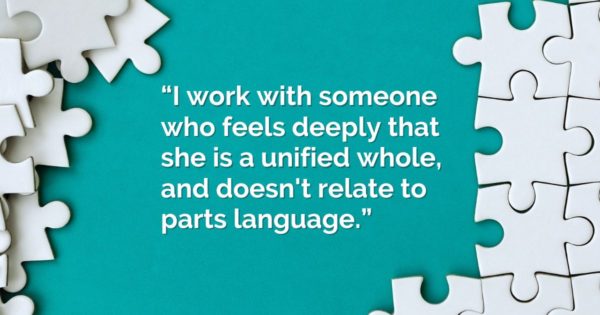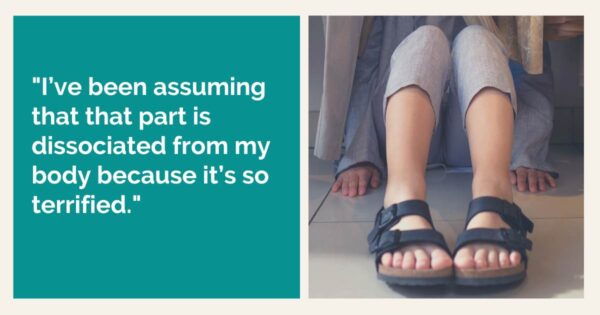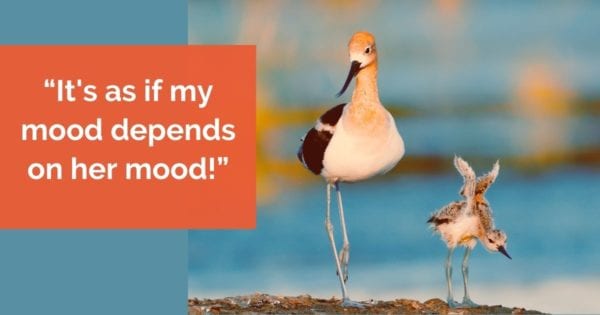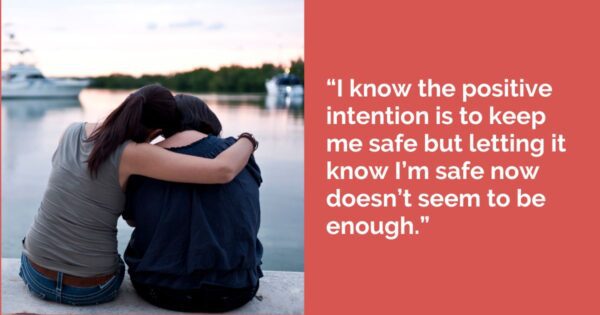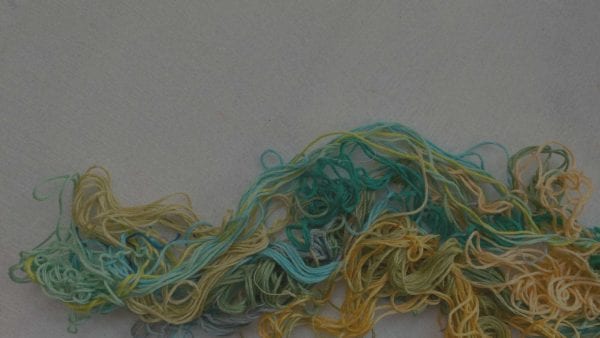Why I don't ask questions
~~~~~~~~~~~~~~~~~~~~~~~~~~~~~~~~~~~~~~~~~~~~~~~~
A Focusing student was listening to me guide a first-time Focuser in my Demonstration Class. After the session was over, she was amazed.
"You didn't ask questions!" That's what astonished her the most.
It's true. When I take someone through a Focusing process, I do not ask questions. And I have a very good reason for that. From my research in sociolinguistics (the study of language use in interaction) I have discovered that questions are not a very effective way of facilitating a process.
A question is a great way to find out information and to connect with another person. Questions highlight the interpersonal dimension. Asking another person a question brings them into connection with you. Often, this is a good thing.
But not for Focusing.
When you are a Focusing Companion or a Focusing Guide, the interpersonal is not what is primary. I don't want the Focuser to feel they need to talk to me, to look at me. It's not about their relationship with me–it's about their inner relationship with
"something" inside.
I've learned that when I don't ask questions, people are more easily able to stay in contact inwardly and they are more supported in doing what I'm inviting them to do without going blank or answering from the head.
How to not ask questions
~~~~~~~~~~~~~~~~~~~~~~~~~~~~~~~~~~~~~~~~~~~~~~~~
So what do I do instead of asking questions?
First of all, I reflect–in other words, I say back to them what they tell me. The purpose of that is so they can check their own words inside, with the inner place that they are sensing. I have some quite sophisticated ways of reflecting that I've learned from great Focusing guides. You can read more about them if you like in my article The Power of Listening.
The other thing I do is give invitations, also called "reminders." These are supportive prompts that help the Focuser stay with the process and go deeper. (And no, they are not questions!)
Here are some examples:
"See if you'd like to stay with that."
"Maybe you could describe what that feels like."
"Notice how that feels in your body."
If you are with someone helping them do Focusing, and all that comes to mind is a question, here is a tip for turning just about any question into an invitation: Just put the word "notice" in front of it.
Like this: "How does that feel in your body?" –> "Notice how that feels in your body."
Give it a try!

